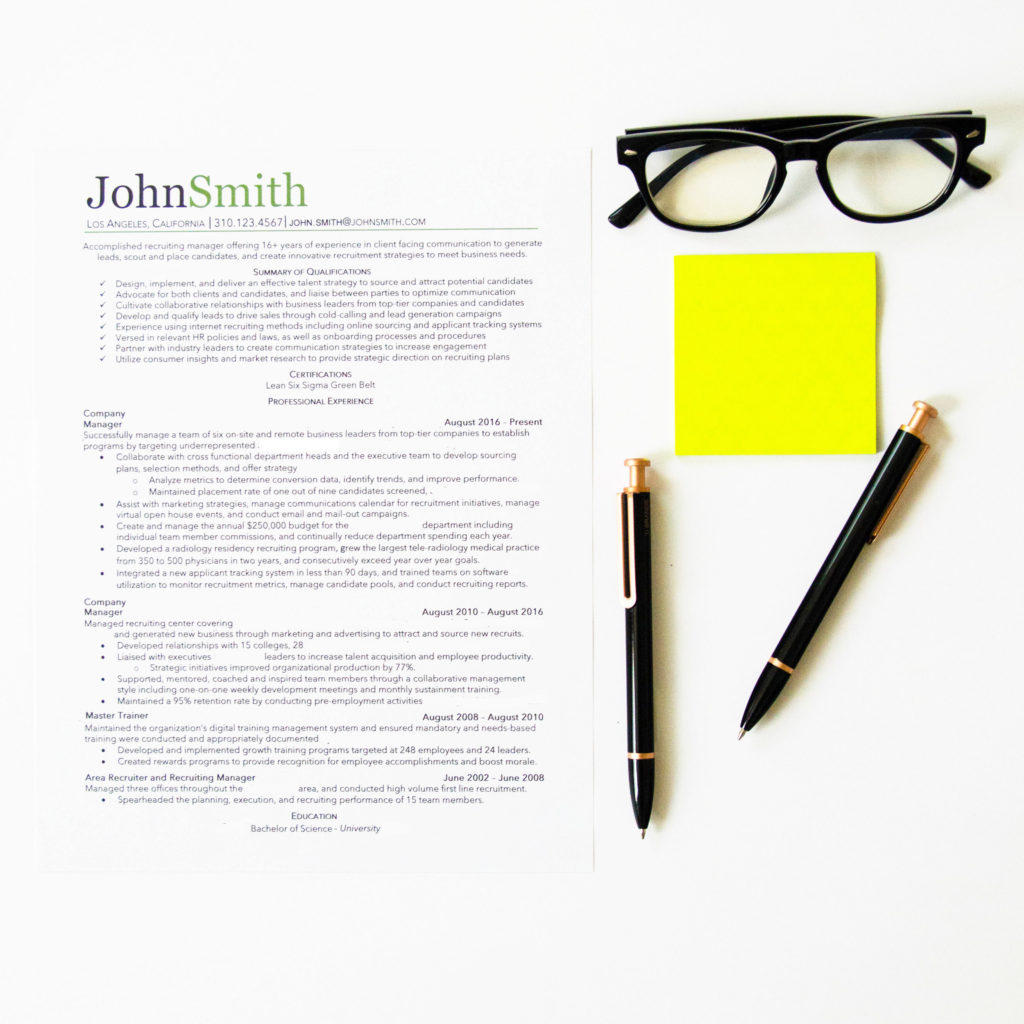
Writing application documents such as resumes and cover letters can be overwhelming. It can be difficult to articulate your value, but furthermore, it can be a challenge to determine what information should be integrated into your resume, and what information should be integrated into your cover letter. If you’re struggling with determining how to categorize your information, continue reading for a full breakdown. Here is how to figure out what information should be included in your resume vs. your cover letter.
Resume:
When determining what information should be included in your resume vs. your cover letter, it’s important to understand the difference between the two documents. A resume is a short snapshot of your career that is a tool to help you get through the initial application stage into the interview stage when applying for a job. This document focuses on accomplishments to help articulate your value as a candidate. Keywords and phrases from the job description you’re applying to are essential to building an effective resume. This will ensure that your document aligns with the job description if your resume is put through an applicant tracking system (ATS). 98% of Fortune 500 companies use applicant tracking systems to scan resumes, so if you’re applying to a large company, it is important to be cognizant of this when you apply.
Given these statistics along with many other similar statistics out there, it can feel as if your document must include everything about you in order to be compelling. Resumes will always be subjective, but the goal of the document is to highlight your value as a candidate and how this relates to the job you’re interested in applying to. If the reader (namely a recruiter or hiring manager) cannot see how you would add value to the role, your resume will not be an effective tool for you to utilize in your job search. A resume should be catered to the job that you’re applying for; this means that your resume should be mainly focused on your skills and accomplishments, not your personality.
Cover Letter:
If you want to highlight who you are as a candidate, your cover letter provides you the opportunity to do so. A cover letter is typically where a candidate can add more enthusiasm and personality to an application, whereas a resume is focused on accomplishments. A cover letter allows you to tell the reader exactly why you want this specific job, discuss culture fit, and share your motivation to join the organization.
Christy Noel, Career Strategist and Author of “Your Personal Career Coach” explains, “Too many job seekers don’t take the time and effort to write a cover letter, and this is a strategic mistake. A cover letter gives hiring managers much more insight about your experience and personality than a resume alone can. It provides another opportunity to reinforce your qualifications, accomplishments, and achievements. And the mere fact that you write one will position you to stand out among the other candidates, especially since most do not write them.”
Dana Leavy-Detrick, Resume Writer, Personal Brand Strategist, and Career Consultant at Brooklyn Resume Studio adds, “The cover letter should complement the resume by speaking to your specific interest in that role or organization, versus simply reiterating your employment history. The cover letter is a great platform for expanding on information that can be difficult to address in the resume, such as employment gaps, special projects, or inspiration for career change.”
The Bottom Line:
Both your resume and cover letter are important elements of an effective job application because each document highlights different information. Together, the combination of accomplishments, career history, and enthusiasm for the role work to paint a detailed picture of you as a candidate.
Leavy-Detrick goes on to add an important point, “Keep in mind that hiring managers will often look at the resume first – so make sure it can stand on its own, and that any key qualifying information in the letter is also reflected in the resume itself.”
When you’re determining what information should be included in your resume vs. your cover letter, remember that your resume is a snapshot of your career with notable achievements. This document should be used as a tool to persuade recruiters or hiring managers to learn more about you through an interview. Your resume should align with the job description you’re applying for and utilize key words and phrases to help you meet applicant tracking system requirements. Your cover letter is your opportunity to discuss specific scenarios such as relocation, employment gaps, etc., and allows you to explain why you are interested in this particular role in order to highlight the value you bring as a candidate. It’s a good idea to highlight achievements from your career in your cover letter as well as your resume, but be mindful that your cover letter should highlight your desire to obtain the role you’re applying for because this is not information that can easily be integrated into your resume.
